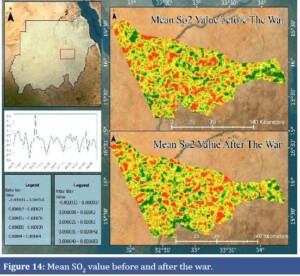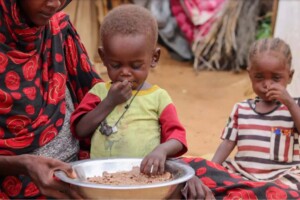Women and girls lauded for role in science in Sudan
Member of the Sovereignty Council (TSC) Aisha Mousa has hailed women and girls for the increasing role they play in developing science and shaping the scientific future in the world.
 Students of Ed Daein University (File photo)
Students of Ed Daein University (File photo)
Member of the Sovereignty Council Aisha Mousa has hailed women and girls for the increasing role they play in developing science and shaping the scientific future in the world.
Addressing the Sudan University of Science and Technology for the celebration of the International Day of Women and Girls in Science on Thursday, organized by the UNESCO Chair for Women in Science and Technology, in cooperation with the UNESCO Office in Khartoum, Mousa said that the victory of women in Sudan in the field of science is a double victory, as it combines academic excellence and overcoming the complex conditions for women's education.
She stressed the importance of supporting girls to enter the world of science in order to develop it, calling for providing equal opportunities for both genders to contribute to setting the building blocks of sustainable development that the world seeks to realize by 2030.
The Vice-Chancellor of Sudan University of Science and Technology, Professor Awad Saad, said that the university has allocated 50 per cent of the seats of deans of colleges for women, indicating that the university will focus on training women working in the countryside on the latest technologies.
Director of UNESCO Office in Khartoum, Pavel Kroupkine, said that UNESCO has created training opportunities for women in many fields, especially small industries, to enable women to become skilled and rely on themselves.
On January 6, Prime Minister Abdallah Hamdok instructed the National Centre for Curricula and Educational Research in Khartoum to stop developing new school curricula as their proposals caused controversy in the country. The proposed new school books were widely criticised, in particular by Muslim clerics.
Both the Muslim Ansar El Sunna and the Ansar Affairs Association* welcomed Hamdok's decision to form a new national committee to prepare the curricula.
Women were visible leaders on the frontlines of the 2018 December Revolution against the regime of Omar Al Bashir, ousted in April the following year. News outlets estimated that about 70 per cent of the protesters were women.
Yet, following the protests, women in Darfur and in Khartoum have been calling for broader representation in the new transitional government.
The Constitutional Document of August 2019 guarantees 40 per cent representation to women in the 300-seat Legislative Council, still to be formed. The new quota is an increase from the previous representation quota of 25 per cent set during the former regime of ousted President Omar Al Bashir.
(Source: SUNA)
* Ansar El Sunna means ‘Followers of the Sunna’, the Prophet Mohamed’s way of life, teachings, and actions. Concerning the position of women and girls, they say the Koran and Sunna dictate gender segregation. The Ansar are followers of Mohamed Ahmed bin Abdallah who proclaimed himself the Mahdi (redeemer of the Muslim faith) and led the Mahdist movement against the British in Sudan in the 1880s.











 and then
and then